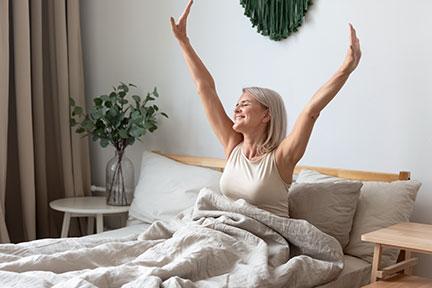
Many people know the importance of getting enough sleep, especially if you have dealt with exams season at school or university. If you haven't, then this fact quickly becomes apparent once you enter the workplace and you find yourself committed to strictly-enforced working hours.
However, there is a lot more to sleep than just getting your daily eight hours in. As with many other things in life, sleep patterns are subject to certain changes as you age. Here is a closer look at those changes, and how they may affect your health as you get older.
Reduced Duration Of Sleeping Hours
If you pay some attention to older people, you would notice how they sleep for fewer hours every day. This could lead to physical and mental fatigue over time. You only have to look at babies and young children to see the difference; younger people generally sleep for much longer than most adults.
Less Restful Sleep 
You may have noticed how younger people can sleep through loud noises and other things. On the other hand, older adults and the elderly often report feeling tired soon after waking, or getting roused by the slightest commotions. Restlessness comes with aging, and it can impair your daily functions and even lead to mild depression. Once this starts to happen, it’s important that you follow good advice on how to get a better sleep.
Medical Conditions And Sleep
When illnesses such as lung disease and cardiovascular disease are combined with a lack of good sleep, it could lead to serious medical trouble in the future. Medical research has shown that regular sleeping patterns can help manage conditions like Alzheimer's. This is why it’s vital that elderly people prioritize maintaining a good sleeping pattern.
Sleep And Mortality Rates
Research on how sleep quality affects early death underscores the importance of getting enough quality sleep as we age. The research shows that poor sleepers had higher mortality rates after 12 years, and that bad sleeping habits can be a subtle indicator of an illness that might only be starting to surface. If you are elderly and a bad sleeper, you may want to bring it up the next time you consult your physician.
Napping During The Day
Taking a nap in the middle of the day is sometimes frowned upon when young people do it, but it is a generally accepted thing for the elderly. In Spain, this midday sleep is referred to as a ‘Siesta’ and people usually take it after eating lunch. This habit helps elders compensate for sleeping fewer hours during nighttime, minimizing the effects of sleep deprivation throughout the day.
Conclusion
You may take the benefits of good quality sleep for granted when you are still young, but this shouldn’t be the case as you grow older. Take positive action as early as you can to ensure that your sleeping habits contribute towards having good physical and mental health.
Author Bio
John Brown is a content marketing analyst. He has been in the business for more than eight years and helps clients with various aspects of their digital marketing strategy. He is a health nut and spends his spare time cooking and preparing for marathons.
